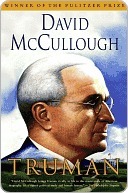More on this book
Community
Kindle Notes & Highlights
Recalling the evening, Truman would write that what impressed him most was “the complete, almost unspoken acceptance on the part of everyone that whatever had to be done to meet this aggression had to be done. There was no suggestion from anyone that either the United Nations or the United States should back away from it.”
It would be said of Harry Truman that without consulting Congress or the American people, he had rushed to judgment; that “as Hermann Goering, when he heard the word culture, reached for his gun, Harry Truman when he heard the word problem, reached for a decision.”
As for MacArthur, Truman’s private view seems to have been no different from what it had been in 1945, at the peak of MacArthur’s renown, when, in his journal, Truman had described the general as “Mr. Prima Donna, Brass Hat,” a “play actor and bunco man.” The President, noted Eben Ayers, expressed “little regard or respect” for MacArthur, called him a “supreme egotist” who thought himself “something of a god.” But working with people that one did not necessarily like or admire was part of life—particularly the politician’s life—and if removing Louis Johnson would have been difficult under the
...more
Then there were Eisenhower and Marshall—Eisenhower, the man Truman had been willing to step aside for, to make him President, and Marshall, “the great one,” whom Truman revered above all men.
“I must confess, sir,” Churchill went on, “I held you in very low regard then. I loathed your taking the place of Franklin Roosevelt.” He paused. “I misjudged you badly. Since that time, you more than any other man, have saved Western civilization.” In a dark period for Harry Truman, a winter of tawdry scandal, of interminable war in Korea and greatly diminished public confidence in his leadership, the gallant old ally had again, and as only he could, served as a voice of affirmation.
They explored the green hills of Umbria where St. Francis once lived with the birds and animals; they shopped for leather goods on the centuries-old Ponte Vecchio over the Arno in Florence, gazed at the Botticellis in the Uffizi Gallery. In Venice, he and Bess, like every other tourist, strolled St. Mark’s Square and rode together in a gondola down the Grand Canal.
In the tradition of homespun Benjamin Franklin, he had charmed Europe by being himself.
Born in the Gilded age, the age of steam and gingerbread Gothic, Truman had lived to see a time of lost certainties and rocket trips to the moon. The arc of his life spanned more change in the world than in any prior period in history. A man of nineteenth-century background, he had had to face many of the most difficult decisions of the unimaginably different twentieth century. A son of rural, inland America, raised only a generation removed from the frontier and imbued with the old Jeffersonian ideal of a rural democracy, he had had to assume command of the most powerful industrial nation on
...more
He was the kind of president the founding fathers had in mind for the country. He came directly from the people. He was America. In his time, in his experience, from small town to farm to World War in far-off France in 1918; from financial failure after the war to the world of big-city machine politics to the revolutionary years of the New Deal in Washington to the surge of American power during still another terrible World War, he had taken part in the great chronicle of American life as might have a character in a novel.
Zachary Scott liked this


